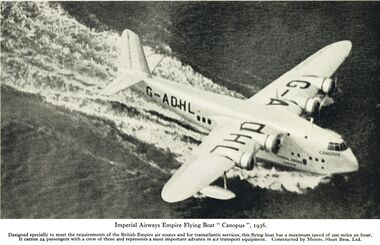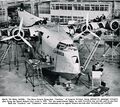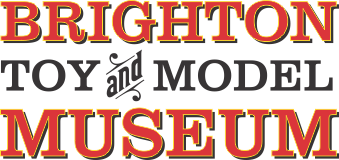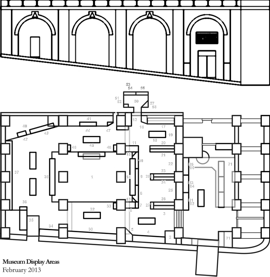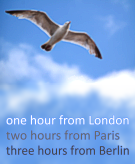Category:Empire Flying Boats
1938: G-ADUV Cambria [image info]
1937: G-ADHL Canopus [image info]
1938: G-ADHL Canopus [image info]
1938: G-AETV Coriolanus, in Basra [image info]
1938: The Short Scion Senior was in effect used as a half-scale prototype for the "Empire"'s airframe [image info]
The S.23 "Empire" Flying Boats were produced (by Short Brothers) from 1936 to 1940, primarily for Imperial Airways. The purpose of the craft, reflected in the name, was to be an icon representing the British Empire, whose far-flung territories the craft connected. The aircraft seems to have been successful in meeting this specification.
History
Emboldened by the success of the Singapore Flying Boats, Robert Mayo of Imperial Airways drew of a design specification for a more modern "double-decker" medium distance monoplane airliner to service routes around the British Empire, amd instructed an unnerved Short Brothers that they wanted twenty-eight of the things, and that they wanted them as soon as possible. Given that Short's Singapore I flying boat had first flown in 1926, and the type didn't go into actual production until the third-generation Singapore III, with first flights in 1934, Mayo and Imperial felt that the technology was now sufficiently mature and that lead times of this sort were now unacceptable. The order was to be placed and the planes were to be drawn up and to go into production even though there was not yet prototype, or even a design to work from.
Short Brothers did at least manage to get away with testing a half-scale version of the basic design as a seaplane (the Scion Senior).
As things turned out, the confidence of Mayo and Imperial was proved right, and Short delivered a good plane, very quickly. The first of the "Empires" to be built, Canopus, flew in July 1936, and Imperial got to carry out a successful test flight of Caledonia in October 1936. The last three of the batch were finished in February 1938 and got diverted to Quantas, Imperial having decided by this time that they were so happy with the plane that they wanted to order another eleven (now the S.30). In the end, forty-two of the planes ended up being built, many of which ended up being used during WW2 as medium range patrol craft and on other miscellaneous duties.
1937 commentary:
In connexion with the new Empire Air Transport Scheme an order was placed by Imperial Airways, Ltd., in 1935 for twenty-eight new flying boats and twelve landplanes. The former, which have been designed and are being constructed by Short Brothers, Ltd., will have a total weight loaded of 40,500 lb., including a crew of five and a "payload" of about 3 tons in the standard model. Four Bristol "Pegasus" engines developing a total of about 3,000 h.p. will be fitted and the maximum speed is estimated at about 200 miles an hour (see Plate XXXI). The design provides for two decks within the hull, the upper being occupied by the captain and crew, and the lower devoted to passenger saloons. Much attention has been paid to comfort and the aircraft have also been designed with a view to meeting the difficult conditions on the Empire routes. It is proposed also to employ some of these flying boats experimentally on the projected transatlantic services and special equipment for long-range work is being undertaken. In addition to this development, two types of aircraft have been evolved specially with a view to meeting the conditions of transatlantic operation and they constitute a new and most interesting experiment.
— , M.J.B. Davy, , Interpretative History of Flight, , 1937
Side-projects
- The Short S.25 Sunderland Flying Boat was the military counterpart of the S.23 Empire. Although the project-specification that the Sunderlands addressed had appeared before the Imperial Airways specification, the "Empires" were the priority, and the Sunderlands appeared later.
- The Short-Mayo Composite Aircraft used a first stage that was essentially a modification of the "Empire" design. The two-stage approach to achieving longer flights with greater payloads for a given airframe became less compelling once engineers had mastered the art of designing in-air refuelling systems.
Names
S.23
- G-ADHL – Canopus
- G-ADHM – Caledonia
- G-ADUT – Centaurus
- G-ADUU – Cavalier
- G-ADUV – Cambria
- G-ADUW – Castor
- G-ADUX – Cassiopeia
- G-ADUY – Capella
- G-ADUZ – Cygnus
- G-ADVA – Capricornus
- G-ADVB – Corsair
- G-ADVC – Courtier
- G-ADVD – Challenger
- G-ADVE – Centurion
- G-AETV – Coriolanus
- G-AETW – Calpurnia
- G-AETX – Ceres
- G-AETY – Clio
- G-AETZ – Circe
- G-AEUA – Calypso
- G-AEUB – Camilla
- G-AEUC – Corinna
- G-AEUD – Cordelia
- G-AEUE – Cameronian
- G-AEUF – Corinthian
- G-AEUG – Coogee
- G-AEUH – Corio
- G-AEUI – Coorong
- G-AFBJ – Carpentaria
- G-AFBK – Coolangatta
- G-AFBL – Cooee
S.30
- G-AFCT – Champion
- G-AFCU – Cabot
- G-AFCV – Caribou
- G-AFCW – Connemara
- G-AFCX – Clyde
- G-AFCY – Captain Cook
- G-AFCZ – Australia then Clare
- G-AFDA – Aotearoa
- G-AFKZ – Cathay
S.33
- G-AFPZ – Clifton
- G-AFRA – Cleopatra
Pages in category ‘Empire Flying Boats’
The following 3 pages are in this category, out of 3 total.
Media in category ‘Empire Flying Boats’
The following 6 files are in this category, out of 6 total.
- Cambria, Short Empire Flying Boat (PowerSpeed 1938).jpg 3,000 × 2,668; 1.84 MB
- Canopus Empire Flying Boat G-ADHL, Imperial Airways (IHoF 1937).jpg 3,000 × 1,932; 1.37 MB
- Canopus Empire Flying Boat G-ADHL, on the Medway (PowerSpeed 1938).jpg 3,000 × 1,661; 1.08 MB
- Coriolanus, Empire Flying Boat G-AETV, Imperial Airways (PowerSpeed 1938).jpg 3,000 × 1,212; 595 KB
- Empire Flying Boat, Dinky Toys 60r (MeccanoCat 1939-40).jpg 1,181 × 882; 141 KB
- Short Scion Senior VT-AHI, in Burma (PowerSpeed 1938).jpg 3,000 × 1,696; 1.14 MB

